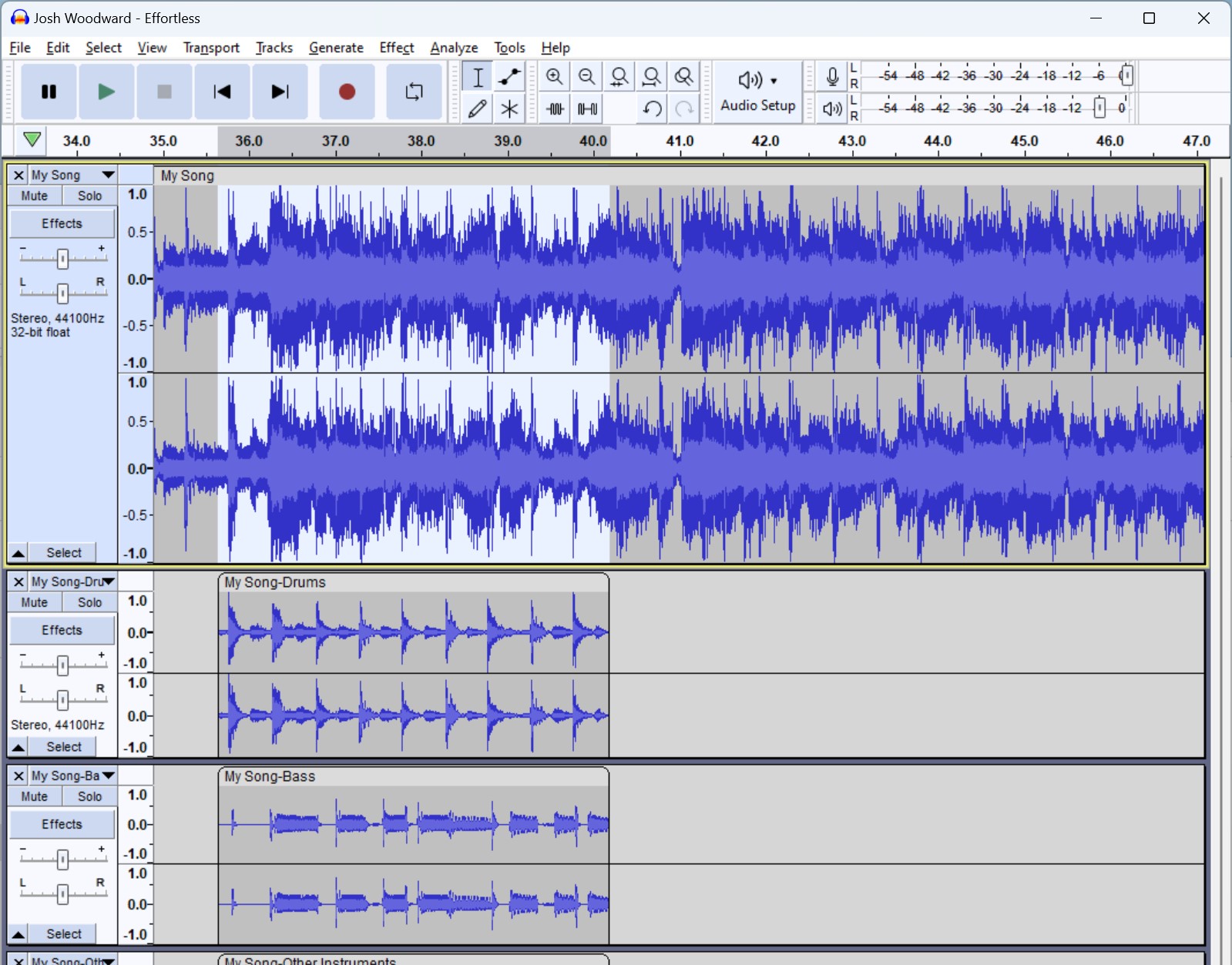I’ve been using the OpenVINO plugins for a few weeks and it’s genuinely impressive. Noise cancelling is one thing, but the transcription tool is amazing. I can create subtitles from conference recordings in minutes and create transcripts of recorded zoom calls, etc. and it does it for multiple languages.
That’s the kind of shit I like using AI for.
The music separation and speech transcription plug-ins actually sound nice. Obviously that will depend on how reliable they actually are.
I just tried the OpenVINO transcription on a random speech-over-music mp3 I happened to have: it works great, FAR better quality than I expected (I think I was expecting Youtube quality, but this is much cleaner and clearer). Perfect capitalization, good sentence breaks, adequate punctuation (commas, periods, question marks).
Only problem is that I can’t figure out how to copy the transcription so I can paste it outside Audacity: the transcriptions show up attached to specific portions of sound, like track labels. While it will save me the trouble of having to actually transcribe audio manually, to get them out of Audacity and into a word processor it looks like I may still be stuck copying each “label” individually unless I can find a way to copy or export them.
EDITED TO ADD: I just answered my own question, lol. File -> Export Other -> Export Labels -> .txt file
Audacity just doesn’t seem worth the trouble after discovering Reaper and how powerful it is for only $60.
I’m a sound engineer and I use different DAWs for different purposes. There’s just no one DAW that does all, so this is a compromise I’m happy to go with.
When I do podcast editing, I use Audacity to split multi-track WAV files and for truncating silence. It’s just waaaay easier to do this there than on Reaper. Plus it has a loopback recording feature built-in which I use for Zoom meeting recordings etc.
I use Pro Tools for audio post, but for most of what I do I’m a Reaper guy. It’s very powerful as you said and it just works.
I know it can be a hassle switching DAWs (muscle memory on shortcuts can get weird), but for me, I like making the most of the strengths of a tool rather than forcing something to do everything.
That’s awesome!
I learned DAWs with ProTools back around 2006 in college. Dropped out because I didn’t want to enter a competitive trade where my best opportunities were moving out of state.
Got sucked into another industry and haven’t touched much audio for the past decade. Getting back into it now and started on Audacity but the 2021 buyout had me confused where to land with the Tenacity split. the good/bad of open source I suppose but as a user being in the middle of a split was frustrating and detracting from recording. Finding out about Reaper and talking to people leaving ProTools behind even within the industry was just what I needed when I needed it.
My daughter (11yo) is now getting into DAWs as her current goal is to score an internship at KEXP, being able to share with her all the stuff I learned in school has been so much fun.
I see what you mean, in your case as well as mine, Reaper is far more powerful and so far more adequate to our needs But people do not always search for powerful software. Sometimes they only want something easy to learn, with only basic tasks but well performed and entirely free. When you have these requirements, Audacity is better
Audacity is a great learning tool for intro absolutely! When you’re just dipping your toes into recording and editing, free and $60 is a huge difference.
I feel like users that are going to be using any of the features of this plug-in, they’re probably at the point that going to Reaper makes sense.





